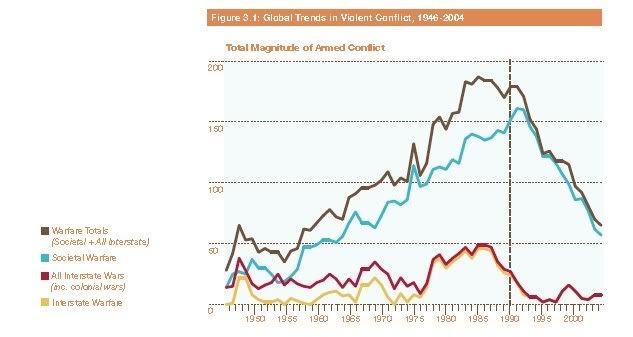"Neurosis: a mental and emotional disorder that affects only part of the personality, is accompanied by a less distorted perception of reality than in a psychosis, does not result in disturbance of the use of language, and is accompanied by various physical, physiological, and mental disturbances (as visceral symptoms, anxieties, or phobias)."
-
Merriam-Webster Online"What we're facing now is a crisis that's the most serious we've ever faced. We do not have time to play around with this anymore."
- Al Gore, on global warming,
March 21, 2007.
In the marketplace of ideas, environmentalists have been among the most successful entrepreneurs of the last 100 years. From modest pledges to preserve some of nature in the face of rapid industrial transformation (Teddy Roosevelt environmentalism) to alerts about the effects of poisons occurring as the result of industrial activity (Clean Air Act environmentalism), it has now persuaded a significant proportion of the world's population that we stand at the threshold of a crisis (anti-human environmentalism).
As I have said before, I am not a global-warming "skeptic," because I don't have the scientific expertise to be, or not to be. However, such knowledge as I do have leads me to think that modern environmentalism has gone seriously astray, particularly with its increasingly fundamental belief that human activity, creativity and ingenuity in remaking the environment for human purposes damages something higher and purer, and is thus morally repugnant. (On this point, see
the bizarre story of the animal-rights activists in Germany who want a polar-bear cub abandoned by its mother to be killed rather than raised by zoo staff, because the latter option would not be "species-appropriate.") Mr. Gore's testimony is vivid evidence of this trend in environmental thinking.
When thinking about the environment, it is important to first remember that the point of environmental policy, as with all public policy, is to advance human interests. It is not to preserve or expand some virginal Nature unspoiled by human degradation. It is OK, perhaps even morally compulsory, to build freeways or factories, to have higher standards of living, and so on as long as these things can be done at acceptable cost, because they advance human interests. We have always altered the earth to our ends from the moment we planted our first seeds, and CO2 emissions are no different.
Environmental damage is something bad that happens as a by-product of something good, human prosperity and achievement. All proposals to "protect" the environment (from humans and their pursuits, presumably) must be seen in this light, or they go nowhere ethically.
Of course, humans have differing interests. Some want land to be used for a new sports complex, serving the interests of all who will use it,
some want the land to remain as forest for their own self-interested purposes. It often falls to politics to referee these disputes. (Mr. Gore, like all central planners enamored of their own wisdom, disdains self-government as "playing around.")
And so when this clear clash of interests in the environmental arena happens, a few observations are helpful in deciding what is right. First, the interests of those damaged by environmental regulations are just as valid as the interests of those helped by them. The frustration of the dreams of billions of desperately poor people is every bit as costly as the frustration of those who don't want to see humans raise the planet's temperature.
Second, the hostility of environmentalism to progress and achievement, achieved through free competition, suggests that they will tend to overestimate the consequences of environmental problems. They view the central plan, the limiting of human freedom from on high, as the only way to solve problems. But if the planet warms, or if the rainforest declines, humans will, first, get something out of it (much more control over their own lives because of greater prosperity), and, second, be able to deal with it through their own ingenuity. If sea levels rise then barriers will be built or buildings will move away from the seashore; if some agricultural areas become less productive so too some will become more productive, and human consumption and production patterns will shift accordingly. Jared Diamond, a very compelling writer of the doomsday-environmentalist stripe, points in his book
Collapse to previous civilizations in places like Easter Island that over-consumed resources in ways that prompted their extinction. All of that was before modern science and modern property rights (his example civilizations typically had none) allowed us to cope with problems so much more effectively.
Third, the costs of environmental regulation will be understated because they are invisible. We will never know how many cured diseases, technological breakthroughs or other important achievements will be foregone if dramatic limits on carbon, or any other pollution or resource use, are imposed. But there is no reason to assume that these costs are insubstantial. Environmental regulations, like all regulations, are limits on creative possibilities. Sometimes, when the threat is direct and severe (dumping pollution into drinking water), this tradeoff clearly favors regulation. Sometimes (preventing the construction of an office building or shopping mall because a grove of trees will be cleared) it does not. Unanticipated consequences from the exercise of government power are often the most severe ones.
The idea that believers in government as the mighty problem solver might overestimate their competence and underestimate human resilience in the absence of their grand plans might be called the planner's fallacy. Modern environmentalism, prone to see crisis everywhere (polar bears, who somehow survived the more dramatic medieval warming centuries ago without any help from the U.S. Congress or the International Panel on Climate Change, are now supposed to be actually threatened with extinction by the modest warming predicted to occur in the next century, e.g.), is unusually prone to it.
Human civilization has been around for millennia. It has dealt with bubonic plague, genocide, geological disasters, and worse. The idea that human society is now a plague on the earth, causing "the most serious crisis we've ever faced," is the narcissim and neurosis of the person who specializes in very specific knowledge - of human impacts on the earth - a little too much. It must be resisted at all costs. The earth is a device for human ends, no more. To accept the philosophical premises of all too much of modern environmentalism would provoke the real crisis.
 According to its own inspector general, the Bureau has managed to issue far more of them than originally claimed in its own reports, and seriously misused the authority Congress gave itin the wake of 9/11. But apparently, it's just a glitch, don'cha know:
According to its own inspector general, the Bureau has managed to issue far more of them than originally claimed in its own reports, and seriously misused the authority Congress gave itin the wake of 9/11. But apparently, it's just a glitch, don'cha know:

